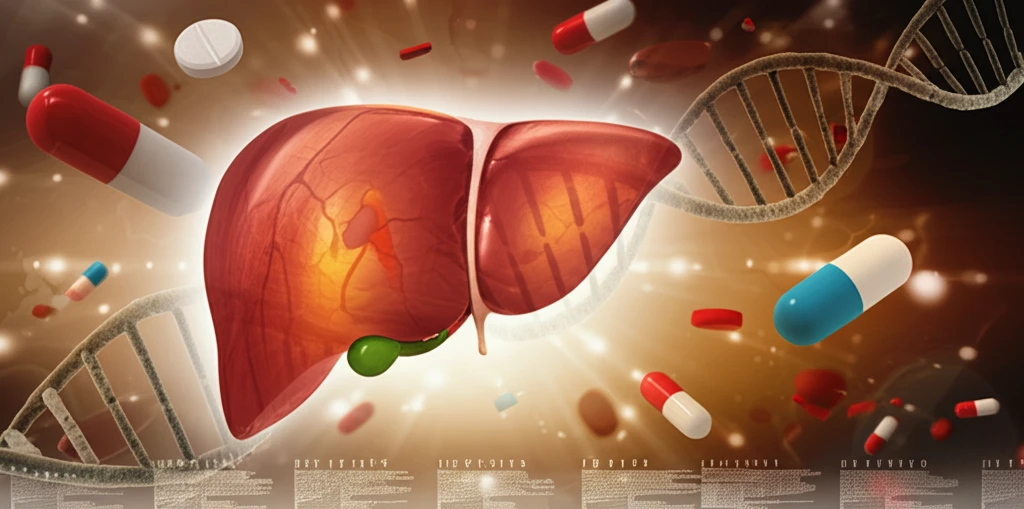
Diabetes and Drug Metabolism: What You Need to Know
"New research highlights how diabetes affects drug metabolism, impacting treatment effectiveness and safety."
Diabetes mellitus (DM), a widespread endocrine disorder characterized by elevated blood glucose levels, affects millions globally. In the Middle East, countries like Jordan and Syria report diabetes prevalence rates of 17.1% and 15.6%, respectively. Beyond its direct impact on blood sugar, diabetes can lead to microvascular and macrovascular damage affecting major organs, including the heart, kidneys, eyes, nerves, and liver.
The liver, a primary site for drug metabolism, is particularly vulnerable in diabetic patients. Uncontrolled diabetes can impair liver function, increasing the risk of liver failure, steatosis, and even cancer. Furthermore, studies suggest that diabetes can alter the liver's capacity to process medications, potentially leading to suboptimal treatment outcomes.
A groundbreaking study investigated how diabetes affects the expression of key drug-metabolizing enzymes in the livers of mice with controlled and uncontrolled insulin-dependent diabetes. The findings shed light on the intricate relationship between diabetes and drug metabolism, offering insights that could improve medication management for individuals with diabetes.
How Does Diabetes Impact Drug Metabolism?

The study revealed significant alterations in the gene expression of cytochrome P450 enzymes (CYP450s), which play a crucial role in drug and arachidonic acid metabolism. These enzymes are essential for breaking down and eliminating drugs from the body. The research compared mice with uncontrolled diabetes (UDM), controlled diabetes (CDM), and a control group to understand these changes.
- Downregulation of CYP450s: Mice with uncontrolled diabetes exhibited a significant downregulation of CYP450 gene expression in the liver. The most affected genes included CYP4A12, CYP1A2, and SLC22A1, with more than a 10-fold reduction.
- Impact of Insulin: Controlled diabetic mice treated with insulin showed higher levels of mRNA compared to UDM mice, though still lower than non-diabetic mice, indicating insulin's role in partially restoring enzyme expression.
- Arachidonic Acid Metabolism: The study also highlighted reduced expression of enzymes involved in arachidonic acid metabolism, which could affect the metabolism of fatty acids and overall liver health.
What Does This Mean for People with Diabetes?
The study underscores the importance of understanding how diabetes affects drug metabolism. Healthcare providers need to consider these factors when prescribing medications to diabetic patients. Monitoring drug levels, adjusting dosages, and being vigilant for potential side effects are crucial steps in ensuring optimal treatment outcomes and patient safety. Further research is needed to fully elucidate the clinical implications of these findings and develop personalized medication strategies for individuals with diabetes.
